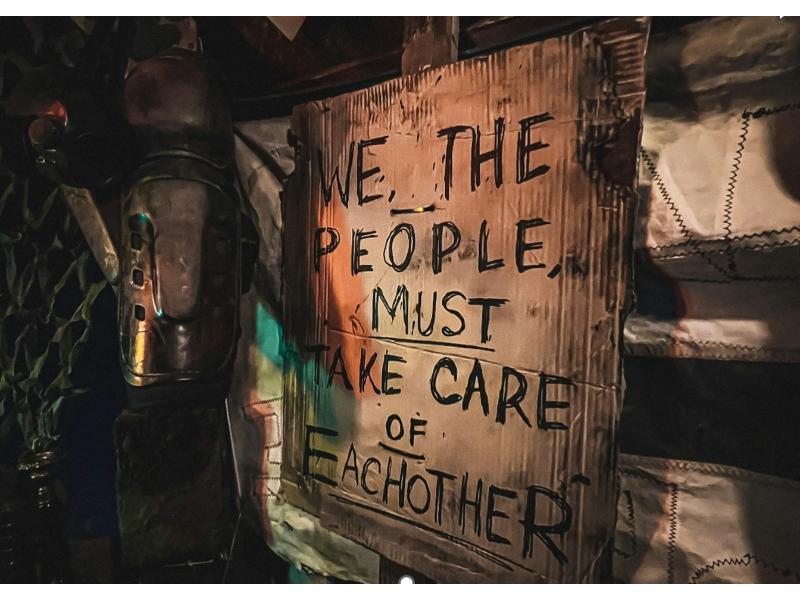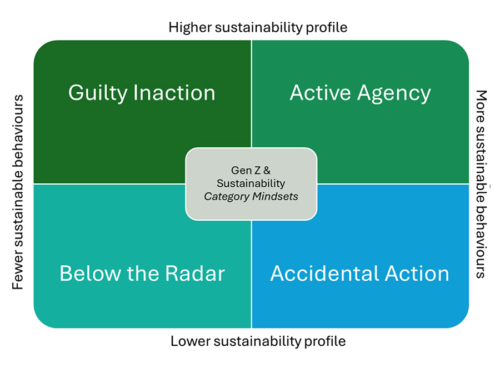
Marketeers understand the importance of Gen Z (born 1997-2013) as the consumers of tomorrow, so in our most recent study we set out to get to know this generation a little better.
As we explored sustainability with our Gen Z participants, their most heartfelt reactions were prompted by the human & social aspects of sustainability. This encompassed both wider social impacts of running global supply chains (e.g. social justice, modern slavery, child labour, women's rights etc.) and fairness and justice closer to home (e.g. living wage, mental health in the workplace, diversity policies). Data supports this as The Purpose Pulse found in its recent report, there has been a 14% increase in the number of Gen Z and Millennials in the UK & USA who expect companies to do more on social issues since 2021 (53% vs 39%). https://www.thepurposepulse.com/#report
So, in this post we're taking a closer look at how and why Gen Z engages so significantly and deeply with social sustainability.
Social sustainability speaks to the heart
Our participants did acknowledge that it is important for brands and business to directly address both environmental and social issues. Limiting environmental harm is now a basic expectation from Gen Z (even if not all businesses deliver); but it is social sustainability that really pulls at their heart strings, most directly shapes their views of brands and can drive them to direct action – either to choose or reject a specific brand. Ben & Jerry's, for example, received kudos from our participants for consistently championing social justice causes.
Isaac, a 24 year old civil servant from Manchester, explains:
"If I was at gunpoint to choose the environment or community, I'd say community, because I already feel like the environment is something that should be going on [anyway]".
So what is it about social sustainability that resonates with Gen Z?
- Exposure- Gen Z have unprecedented digital access to information from a diverse range of sources. This constant exposure to a global community of workers fosters a deep sense of direct connection to distant lives and injustices, which previous generations could not experience in the same way.
- Relatability- our young participants found it easier to relate to the human stories of sustainability, often comparing them with their own circumstances, and expressing a very strong emotional response particularly to signs of poverty, disadvantage or social injustice. Izzy, a 23-year-old Social Care Officer from Manchester, explained:
"[You] really think with a human. What if that was my family or someone you know?"
- Morality- several Gen Z participants presented a moral argument in favour of social sustainability. They argued that while environmental damage is often an unfortunate by-product of business activity, building a business on the back of what could be perceived as human injustice or exploitation smacks of an immorality that they objected to in the fiercest terms.
So what can brands learn from all this?
1. Environmental sustainability = a tablestake for Gen Z
Young people increasingly expect businesses to address their environmental impact. So, even if being green isn't central to your external messaging, this central plank of sustainable practice cannot be neglected; Gen Z will increasingly expect to see a 'clean slate' from brands on environmental issues.
2. Social sustainability = multiple touchpoints.
Social sustainability has many touchpoints throughout the supply chain, so it's important to consider the human interactions at every point. This can also present many opportunities to celebrate truthful positive human stories associated with your brand.
3.Respect for people = Respect from people.
Whether product or service brand or business, showing your respect for all the people involved behind the scenes via positive social sustainability brand narratives will win you respect from Gen Z
Want to know more about our Gen Z – Connected Lives research series? Get in touch with us at info@brand-legacy.com






